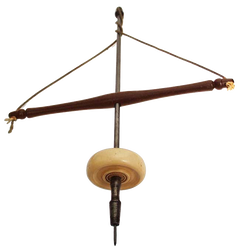Saturday, August 22, 2020
Second Day of Elul 5780
Shabbat Shoftim
Today is Shabbat, the most holy day in Jewish tradition. It is our day of rest and our day of joyfully feeling God’s presence all around us.
This particular Shabbat is called Shabbat Shoftim for the Torah portion we read today. The portion includes laws about warfare. One of the laws prohibits an attacking army from destroying their enemy’s fruit trees. The army is allowed to chop down other trees to build weapons to attack the city, but not the fruit trees. The Torah asks the rhetorical question, “Is a tree of the field a human being who can withdraw from you into the besieged city?” (Deuteronomy 20:19).
According to medieval Jewish commentators, this verse teaches us to have compassion for trees and the natural world. Under a principle called Bal Tashchit, (“You shall not destroy”), we are forbidden from the unnecessary destruction of natural resources. We are taught to treat the world with compassion and love. That commandment, of course, includes the requirement to treat other human beings lovingly, and also to treat ourselves lovingly. We are all a part of the natural world.
Practice for this day:
Take some time to think about the ways you treat the natural world around you. In what ways do you treat the world kindly by not wasting natural resources like water and energy? How do you love the earth by practicing recycling to make sure that resources are given another chance to be useful, instead of just being buried in a landfill? What other things could you do to treat nature with compassion?
Decide on one resolution for loving nature and treating it well. It could be something you have not done up until now that you would like to resolve to do from now on. Or, it could be something harmful you have done that you would like to resolve not to do again. Write down your resolution.
____________________________________________________________________________
____________________________________________________________________________
____________________________________________________________________________






 RSS Feed
RSS Feed
